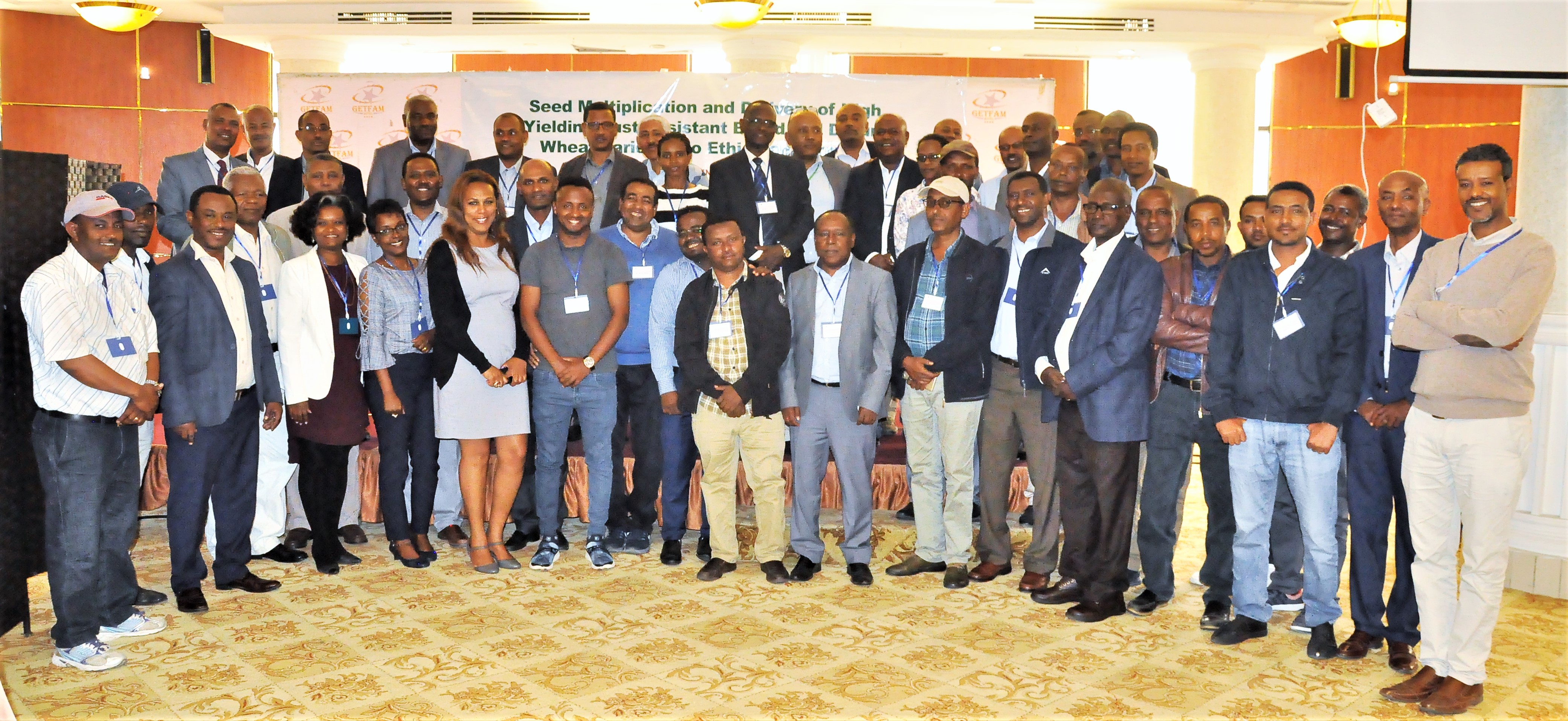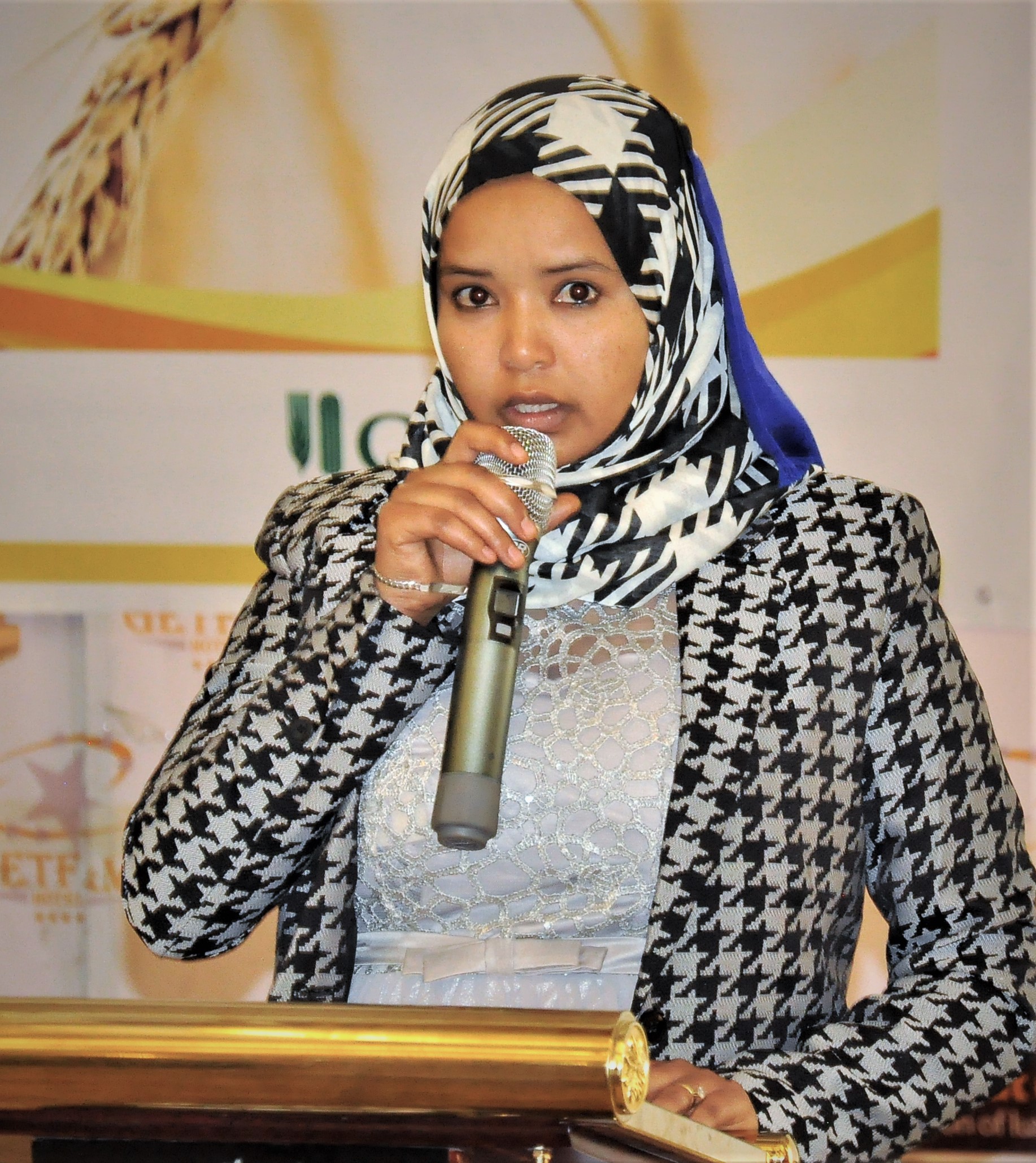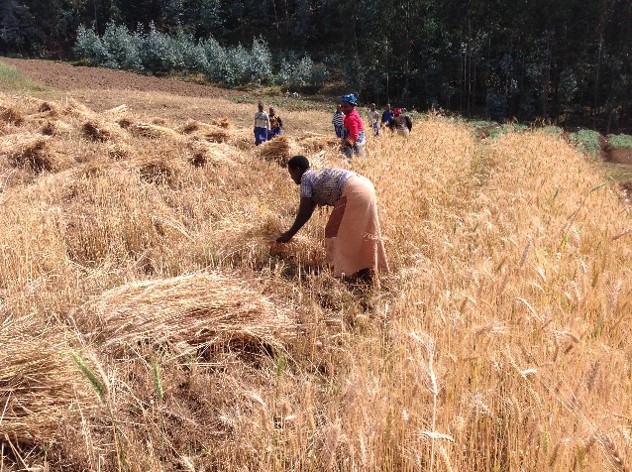
The Ethiopian wheat sector has seen progress since the early 2000s, more than doubling the average farm yields from 1.13 tons per hectare in 1998/99 to 2.74 tons per hectare in 2017/18. Progressive farmers who plant improved wheat varieties and follow recommended agronomic practices could harvest four to six tons per hectare in high-potential wheat growing areas. However, the production is not keeping up with the growing wheat demand: imports reached over 1.5 million tons last year. The Ethiopian government has announced recently that the country should become wheat self-sufficient over the next four years.
One of the biggest wheat production challenges in Ethiopia has been the stem rust and yellow rust diseases caused by Pucccinia spp, which severely affected popular wheat varieties like Kubsa, Galema and Digalu that wiped out from production.
In response to these losses, the International Maize and Wheat Improvement Center (CIMMYT) started an emergency project to multiply and disseminate rust-resistant wheat varieties in the affected regions in 2014, with support from USAID.
The following year, CIMMYT launched the Seed Multiplication and Delivery of High Yielding Rust Resistant Bread and Durum Wheat Varieties to Ethiopian Farmers project. It benefitted people in 54 woredas (districts) of 4 regions: Amhara, Oromia, SNNP and Tigray. CIMMYT collaborated with the Ethiopian Institute of Agricultural Research (EIAR), regional agricultural research institutes and the regional bureaus of agriculture.
This wheat seed scaling project wrapped up with a closure workshop on March 7, 2019. Organized by CIMMYT and EIAR, it gathered representatives from USAID, policymakers, researchers and other governmental and non-governmental institutions.

State minister of agriculture Aynalem Nigussie noted that the project boosted farmers’ productivity thanks to better seeds, improved farming practices and increased knowledge to deal with wheat rust diseases. She recognized that the project aligned with national priorities, as the government is devising a new seed policy to address the current challenges of the Ethiopian wheat seed sector.
CIMMYT’s representative in Ethiopia, Bekele Abeyo, highlighted some of the project outcomes. Some of the achievements in the past four years included the release and demonstration of 23 wheat varieties — 18 bread and 5 durum types —, increased access to these improved seeds for 131,132 households and production of 39,750 tons of wheat grain. Extension agents from 54 woredas participated in training in wheat rust management, recommended agronomic packages for the new wheat varieties, and field data collection and management.
Lessons learned
Abeyo explained that the project could reach a high number of farmers thanks to effective teamwork between the various stakeholders, seed support on revolving bases and a decentralized seed production to reach even remote places. Clustering farmers’ plots favored quality seed production.
Participants flagged weak market linkages, particularly for farmers producing durum wheat, , as a bottleneck to address. Workshop participants recommended the establishment of a wheat task force involving the private sector and with continuous support from funders like USAID.
The director general of EIAR, Mandefro Nigusse, said that the issues raised are inputs for further actions, and some will have to be directed to researchers and breeders to come up with additional solutions for the challenges the wheat sector is facing.
Eyasu Abrha, Advisor to the Minister of Agriculture, officially closed the workshop. He noted that the government of Ethiopia is putting effort into ensuring nutritional and food security, and that projects such as this one are important to address critical challenges in the sector. Abrha acknowledged the support of CIMMYT, EIAR and USAID, and called for a continued collaboration with the government of Ethiopia to meet nutritional and food security goals.


 Climate adaptation and mitigation
Climate adaptation and mitigation 

